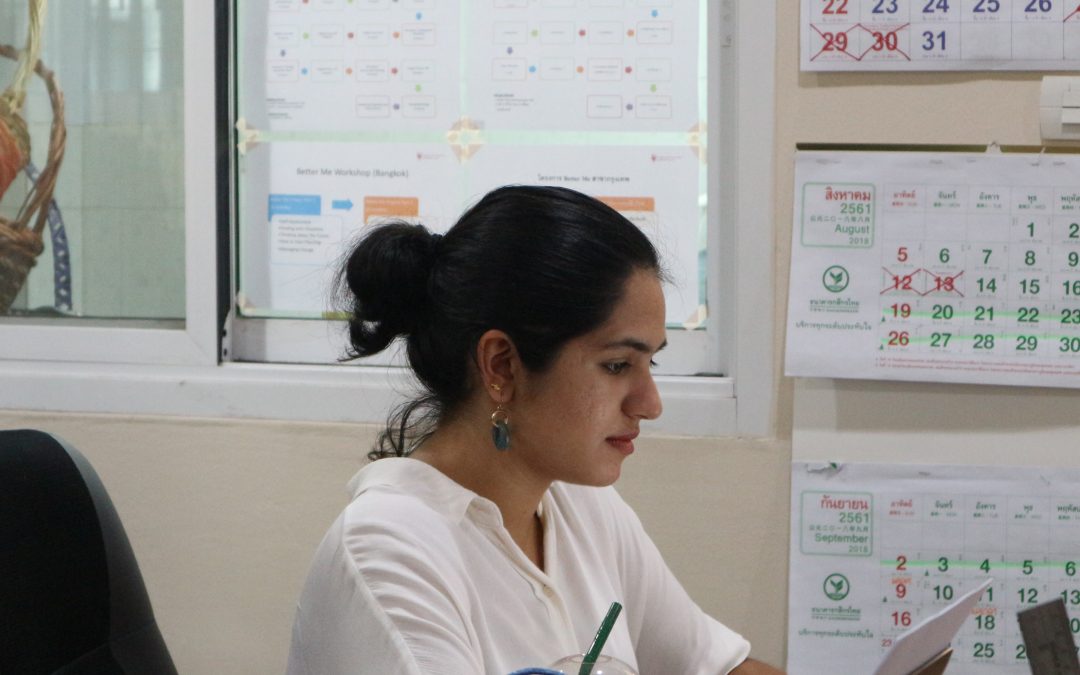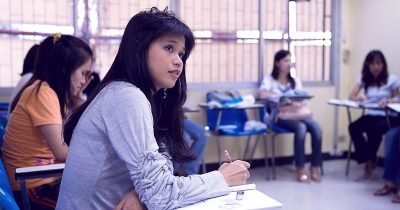A little bit about me: I’m a third-generation Thai-Indian who has spent the last 3 years studying English Literature and History at Durham University in the United Kingdom. Contrary to popular belief, my courses didn’t just involve analyzing poetry or memorizing factual information; I ended up being able to tackle everything through multiple perspectives, with a breadth of knowledge on past and present society, culture, politics, and how the inequalities that exist today usually have its origins in certain moments in our global historical timeline. For my undergraduate dissertation, I explored sexual violence during the Second World War and the historical roots of East Asian feminism. I knew there was more to discover, especially in the country I grew up in, and this dissertation was only the beginning.
I found Pratthanadee Foundation through Instagram, which should come to no surprise to most people, because it’s the platform I use to find everything. I sent in an application immediately, thrilled at the possibility of getting a glimpse into the life of professional feminists. I was able to manage social media platforms, attend workshops, write blog posts and newsletters, and help create general content for the website. After exploring the variety of workshops it had to offer during my first week as an intern, a certain workshop caught my eye. “Claim Your Rights” focuses on providing women and girls with an opportunity to learn how to act and react in a potentially dangerous situation, and the variety of methods and resources they can utilise to save themselves. Admittedly, at first, I was skeptical. Why are we teaching women to prevent sexual violence and assault when we should be teaching men to stop acting violently?
However, not teaching preventative techniques is perhaps just as worse as not advocating for a non-violent stance. Sexual violence and assault does occur. By not giving people the tools to protect themselves is as good as ignoring the problem altogether. We cannot change entire cultural institutions that have deemed men entitled to women’s bodies in a matter of months, let alone years. What we can do, however, is make sure fixing the violence culture incorporates both aspects of education, and includes every gender that is affected by it. What Pratthanadee Foundation is working towards, and what I have been proud of contributing to, is the Facebook page “Learn Your Rights,” which ensures preventative techniques, as well as education to prevent acts of violence, can, must, and will go hand in hand.
Similarly, because it’s difficult for a relatively small organization to tackle the root of the problem, the Thai education system as a whole, Pratthanadee Foundation distributes important information through many other workshops that prioritize life skills – negotiating techniques, how to make short-term goals, and so much more. Over the past two months, I’ve had the opportunity to witness these lessons for myself, and meet some of the students who are undergoing the “Better Me” program. At its core, Pratthanadee focuses on skills that are not necessarily taught in public Thai schools.
What I admired and appreciated the most was that, as an NGO, Pratthanadee Foundation impacts the female Thai community on an individualistic level, rather than through policy or law which can sometimes be difficult to mediate and analyze. Large-scale life changes are being made through a small group of dedicated staff, who are committed and hands-on with their work, that it just ended up inspiring me to work harder.
As Pratthanadee’s lovely director, Sarochinee Unyawachsumrith, said to me in my first week, there is a very small amount of young Thai people with my educational background in this line of work. My fellow young colleagues at Pratthanadee Foundation share very similar world views, but will soon be embarking on their own journeys to create change for other communities, with no one to fill the void they will eventually leave behind.
With so much class and educational privilege, it only makes sense to me that one with a history similar to mine would return home to make a difference to their local communities. It doesn’t have to be immediate, as everyone’s life and career trajectories are different, but it should be something that crosses one’s mind. Change at a local level is just as significant as change on a global scale. Working for local NGOs is not as glorified or glamorous as working for the UN or UNICEF, but it does allow us full control of programmes implemented, as well as a full view of the impact each program is making to men and women in our home countries.
I am leaving Pratthanadee with more than just work experience. I am leaving with a desire to encourage others like me to engage with local organizations, and use their knowledge to develop communities that did not have the same opportunities we did. Unfortunately, as I have recently discovered, many political elites, policymakers, and academics have not yet comprehended the changing ideals of gender and feminist concepts: we are all, no matter which gender we identify with, are affected by patriarchal structures whether we realize it or not. But I know that many of my contemporaries have engaged with this concept, and many can be positive force in the humanitarian sector. Ultimately, my experience at Pratthanadee Foundation taught me that we need individuals who are aware of the changes within gender theory and ideology to contribute to local female-centric organizations, in order to make sure we’re not just creating change, but creating progressive change.






